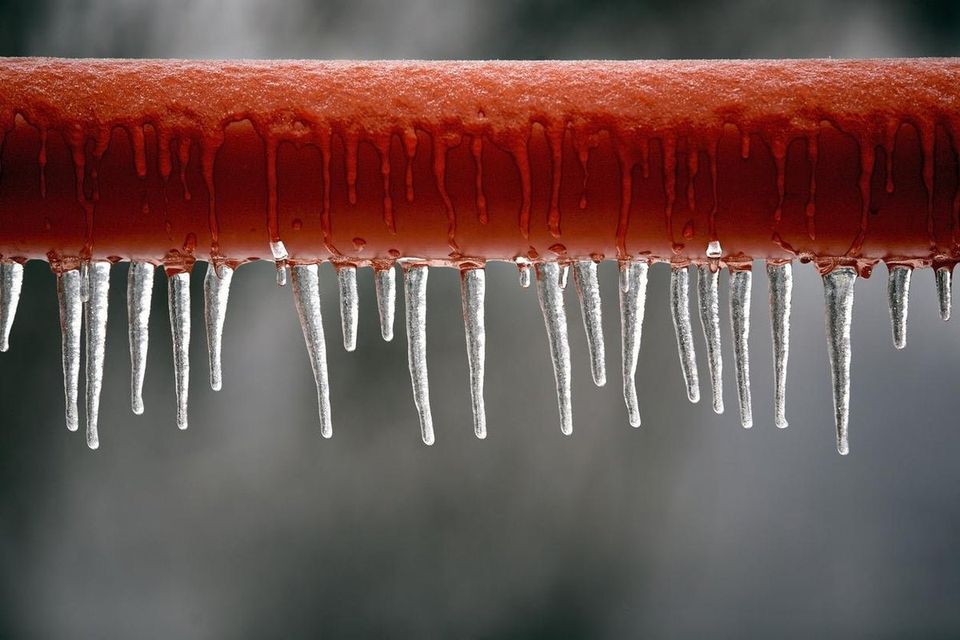How to Prevent Frozen Plumbing in Winter: Expert Tips
How to Prevent Frozen Plumbing in Winter: Expert Tips
Blog Article
What're your opinions with regards to Prevent Frozen Pipes ?

Winter can damage your plumbing, especially by freezing pipelines. Here's how to prevent it from occurring and what to do if it does.
Introduction
As temperatures decline, the risk of icy pipelines increases, possibly bring about pricey repair services and water damage. Understanding how to prevent icy pipelines is important for home owners in chilly environments.
Avoidance Tips
Shielding prone pipes
Cover pipelines in insulation sleeves or make use of warmth tape to safeguard them from freezing temperatures. Concentrate on pipelines in unheated or exterior areas of the home.
Heating strategies
Maintain indoor areas properly heated up, particularly areas with plumbing. Open up cupboard doors to enable warm air to flow around pipes under sinks.
How to identify frozen pipelines
Try to find lowered water circulation from faucets, unusual odors or noises from pipelines, and visible frost on exposed pipes.
Long-Term Solutions
Structural changes
Think about rerouting pipes far from exterior wall surfaces or unheated areas. Include added insulation to attic rooms, cellars, and crawl spaces.
Upgrading insulation
Buy high-grade insulation for pipelines, attics, and walls. Correct insulation aids maintain consistent temperature levels and decreases the threat of icy pipelines.
Protecting Outside Pipes
Garden hoses and outdoor faucets
Detach and drain pipes garden tubes before winter months. Install frost-proof faucets or cover exterior faucets with shielded caps.
Recognizing Frozen Pipes
What causes pipes to ice up?
Pipelines freeze when exposed to temperatures below 32 ° F (0 ° C) for expanded periods. As water inside the pipelines freezes, it increases, putting pressure on the pipeline wall surfaces and possibly creating them to burst.
Dangers and problems
Icy pipelines can result in water disturbances, residential property damages, and costly repair work. Burst pipelines can flood homes and create substantial architectural damage.
Signs of Frozen Water Lines
Identifying icy pipes early can stop them from bursting.
What to Do If Your Pipelines Freeze
Immediate activities to take
If you think icy pipes, keep faucets open to soothe pressure as the ice melts. Utilize a hairdryer or towels taken in warm water to thaw pipelines slowly.
Final thought
Preventing frozen pipes calls for positive procedures and fast responses. By comprehending the causes, signs, and safety nets, property owners can protect their pipes throughout winter.
Helpful Tips to Prevent Frozen Pipes this Winter
UNDERSTANDING THE BASICS: WHY PIPES FREEZE AND WHY IT’S A PROBLEM
Water freezing inside pipes is common during the winter months, but understanding why pipes freeze, and the potential problems it can cause is crucial in preventing such incidents. This section will delve into the basics of why pipes freeze and the associated problems that may arise.
THE SCIENCE BEHIND FROZEN PIPES
When water reaches freezing temperatures, it undergoes a physical transformation and solidifies into ice. This expansion of water as it freezes is the primary reason pipes can burst. As the water inside the pipe freezes, it expands, creating immense pressure on the walls. If the pressure becomes too great, the pipe can crack or rupture, leading to leaks and water damage.
FACTORS THAT CONTRIBUTE TO PIPE FREEZING
Low Temperatures: Extremely cold weather, especially below freezing, increases the risk of pipes freezing. Uninsulated or Poorly Insulated Pipes: Pipes located in unheated areas, such as basements, crawl spaces, or attics, are more prone to freezing. Insufficient insulation or lack of insulation altogether exacerbates the problem. Exterior Wall Exposure: Pipes running along exterior walls are susceptible to freezing as they encounter colder temperatures outside. Lack of Heating or Temperature Regulation: Inadequate heating or inconsistent temperature control in your home can contribute to frozen pipes. PROBLEMS CAUSED BY FROZEN PIPES
- Pipe Bursting: As mentioned earlier, the expansion of water as it freezes can cause pipes to burst, resulting in significant water damage.
- Water Damage: When pipes burst, it can lead to flooding and water damage to your property, including walls, ceilings, flooring, and personal belongings.
- Structural Damage: Prolonged exposure to water from burst pipes can compromise the structural integrity of your home, leading to costly repairs.
- Mold and Mildew Growth: Excess moisture from water damage can create a favorable environment for mold and mildew growth, posing health risks to occupants.
- Disrupted Water Supply: Frozen pipes can also result in a complete or partial loss of water supply until the issue is resolved.
WHY CERTAIN PIPES ARE MORE PRONE TO FREEZING
- Location: Pipes located in unheated or poorly insulated areas, such as basements, crawl spaces, attics, or exterior walls, are at higher risk of freezing.
- Exterior Pipes: Outdoor pipes, such as those used for irrigation or exposed plumbing, are particularly vulnerable to freezing as they are directly exposed to the elements.
- Supply Lines: Pipes that carry water from the main water supply into your home, including the main water line, are critical to protect as freezing in these lines can affect your entire plumbing system.
- Underground Pipes: Pipes buried underground, such as those connected to sprinkler systems or outdoor faucets, can be susceptible to freezing if not properly insulated.
https://busybusy.com/blog/helpful-tips-to-prevent-frozen-pipes-this-winter/

I hope you enjoyed reading our part about Prevent Frozen Pipes . Thank you for spending some time to read our short article. Don't hesitate to take a moment to distribute this post if you enjoyed reading it. Kudos for being here. Revisit us soon.
Request A Quote Report this page